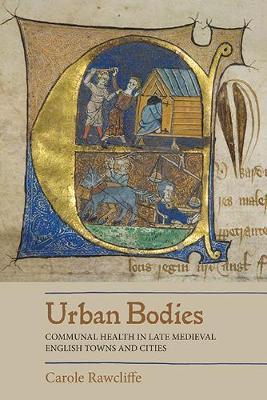Urban Bodies: Communal Health in Late Medieval English Towns

Urban Bodies: Communal Health in Late Medieval English Towns
This first full-length study of public health in pre-Reformation England challenges a number of entrenched assumptions about the insanitary nature of urban life during "the golden age of bacteria". Adopting an interdisciplinary approach that draws on material remains as well as archives, it examines the medical, cultural and religious contexts in which ideas about the welfare of the communal body developed. Far from demonstrating indifference, ignorance or mute acceptance in the face of repeated onslaughts of epidemic disease, the rulers and residents of English towns devised sophisticated and coherent strategies for the creation of a more salubrious environment; among the plethora of initiatives whose origins often predated the Black Death can also be found measures for the improvement of the water supply, for better food standards and for the care of the sick, both rich and poor.
CAROLE RAWCLIFFE is Professor of Medieval History, University of East Anglia.
PRP: 257.76 Lei
Acesta este Prețul Recomandat de Producător. Prețul de vânzare al produsului este afișat mai jos.
231.98Lei
231.98Lei
257.76 LeiIndisponibil
Descrierea produsului
This first full-length study of public health in pre-Reformation England challenges a number of entrenched assumptions about the insanitary nature of urban life during "the golden age of bacteria". Adopting an interdisciplinary approach that draws on material remains as well as archives, it examines the medical, cultural and religious contexts in which ideas about the welfare of the communal body developed. Far from demonstrating indifference, ignorance or mute acceptance in the face of repeated onslaughts of epidemic disease, the rulers and residents of English towns devised sophisticated and coherent strategies for the creation of a more salubrious environment; among the plethora of initiatives whose origins often predated the Black Death can also be found measures for the improvement of the water supply, for better food standards and for the care of the sick, both rich and poor.
CAROLE RAWCLIFFE is Professor of Medieval History, University of East Anglia.
Detaliile produsului













